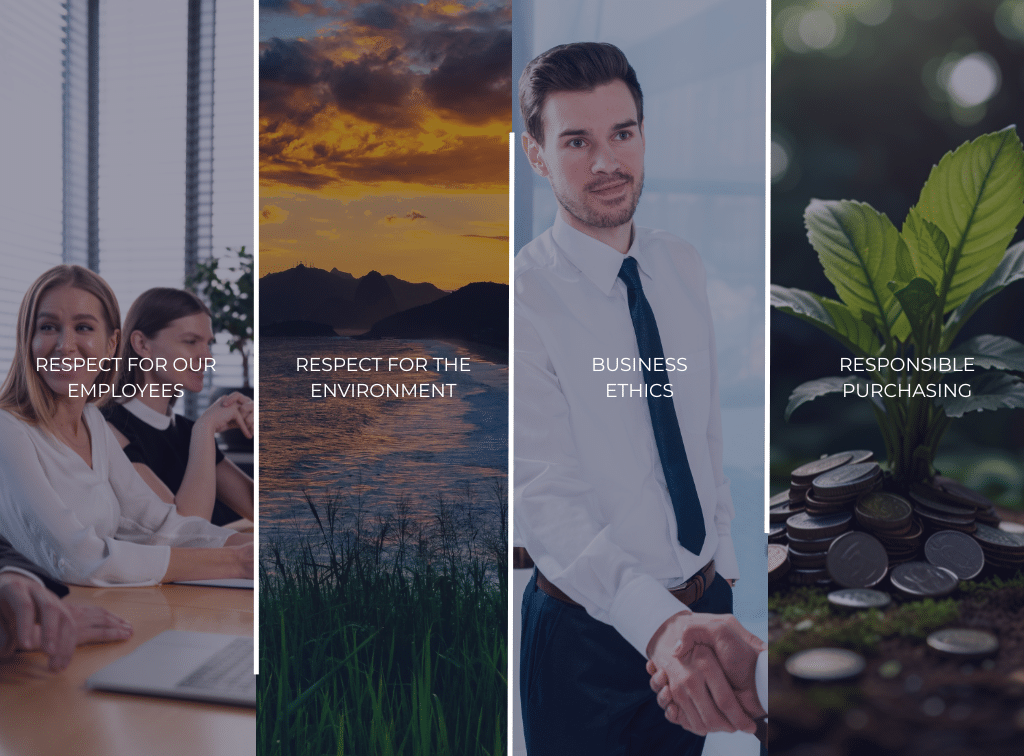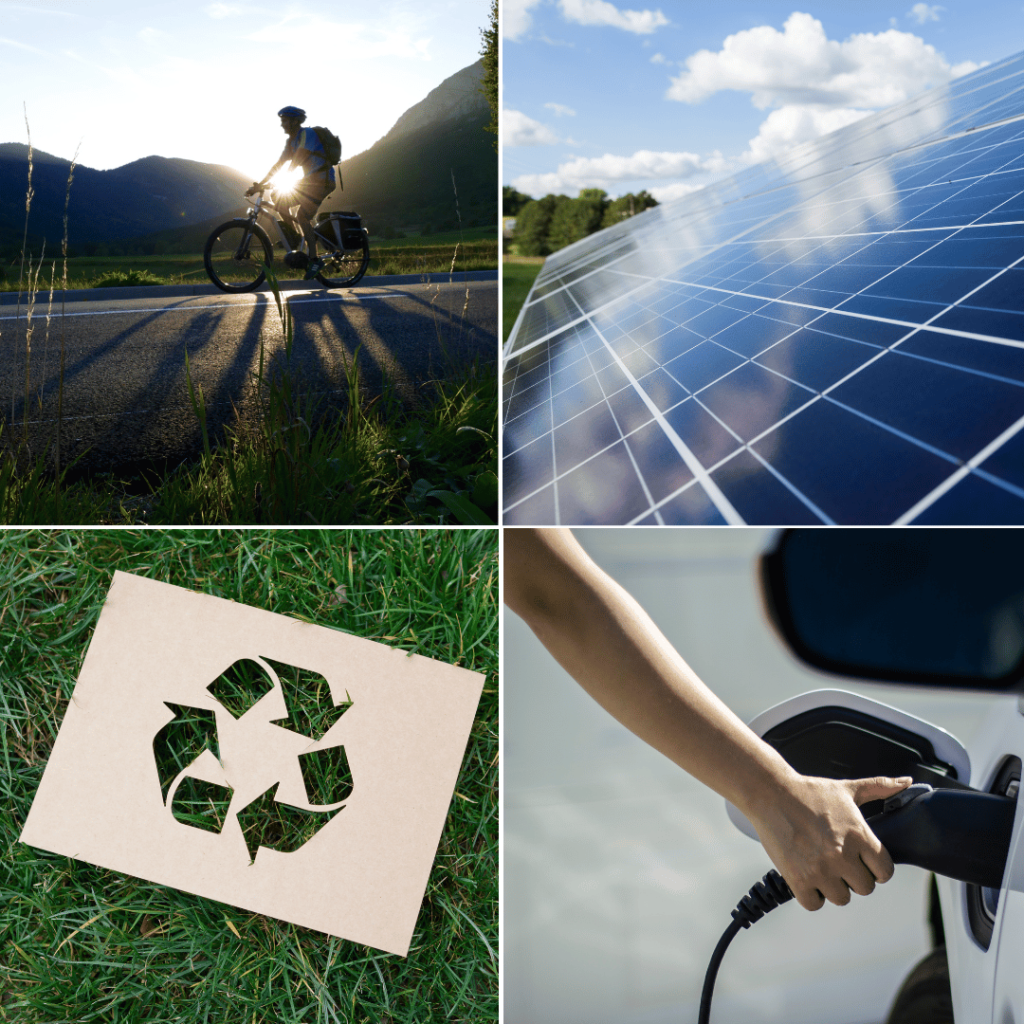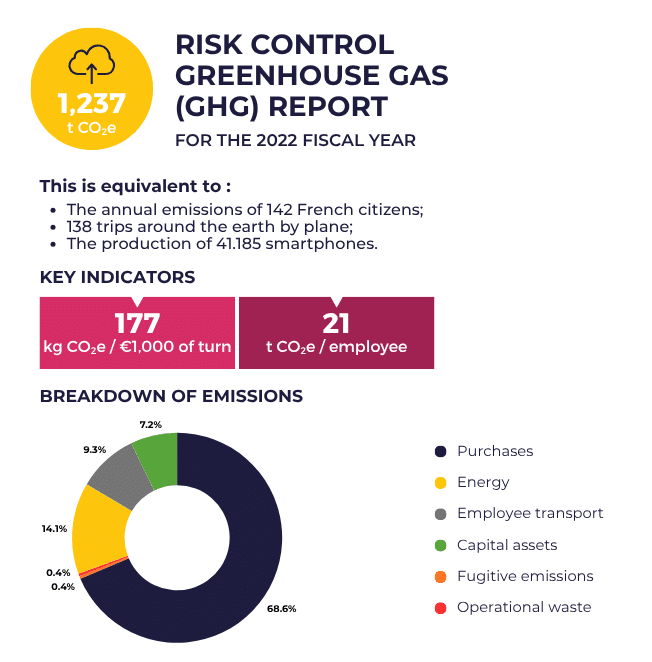Joining Risk Control means joining a company where the technical inspector is only two hierarchical levels away from the CEO, entering a work community where the Agency Manager knows every employee by their first name, building relationships based on trust with our clients and suppliers that favor long-term partnerships, and becoming part of a company that has chosen to invest in human capital and working tools for the long haul.
Issam MAKKE
CEO and Founder
Corporate Social Responsibility at Risk Control
Corporate Social Responsibility (CSR) is one of the key priorities at Risk Control. It means developing our business over the long term while taking social, environmental, and economic factors into account in our decision-making. This approach is a performance lever that creates value, guiding us towards the continuous improvement of collective well-being and strengthening our sense of belonging.
An Ethical Approach
Our ethical commitment is structured around four pillars:

Discover the Pillars of Our CSR Commitments
Environmental Policy
As a company committed to being an eco-responsible player, we demonstrate our respect for the environment through several key focus areas:

1. Reducing the Impact of Our IT Systems
2. Waste Management and Recycling
3. CO₂ Emissions Reduction
4. Reducing Energy Consumption
5. Digitalization and Paperless Processes
6. Ecological Investments
Social Policy

Since its founding in 2011, Risk Control has implemented a formal human resources policy. Driven by top management, HR, and Agency Managers, we are committed to protecting our employees, promoting their well-being at work, supporting their recognition and development, and fostering social dialogue and good managerial practices.
Each year, beyond updating our mandatory Risk Assessment Document , we work to reduce risks in our offices and on sites by organizing exercises that prepare employees to react properly in potential emergency situations.
1. Fighting all forms of discrimination
2. Promoting well-being at work
3. Supporting professional reintegration
4. Valuing and encouraging employee development
5. Promoting social dialogue
Economic Policy: Responsible Partnerships
We hold ISO 9001 certification and are currently pursuing ISO 26000 certification for Risk Control as well as for all our existing and future suppliers.

Only companies committed to environmentally respectful policies will benefit from long-term commercial relationships with Risk Control. We are determined to conduct our activities in line with the core values of a responsible corporate citizen.
Additionally, we raise awareness among our employees about the dangers and risks related to corruption and other unethical business practices.
Carbon Footprint & Greenhouse Gas Emissions
As part of our commitment to sustainable development and CSR, we have conducted a carbon footprint assessment to evaluate Risk Control’s greenhouse gas emissions. This exercise, conducted in partnership with Costraten, identified the main sources of emissions associated with our activities.
The assessment covers Scope 1, 2, and 3emissions, including energy consumption, travel, and all indirect impacts related to our value chain. Using these results, we have identified concrete action levers to reduce our environmental impact and position the company on a low-carbon transition path.
The data now forms the basis for our Carbon Footprint Reduction Action Plandetailing measures implemented to meet our emission reduction goals and strengthen our commitment to more sustainable operations. Breakdown of Risk Control’s Greenhouse Gas Emissions

Objectifs de réduction des émissions
Scope 1 – Flotte de véhicules
- Renouvellement progressif de la flotte avec des véhicules plus faiblement émetteurs
- Intégration de véhicules électriques
- Mise en place d’une politique de mobilité d’ici mars 2026 visant à optimiser les déplacements
Scope 2 – Énergie
- Maîtrise et suivi des consommations d’électricité
- Étude en cours pour la souscription à une offre d’électricité renouvelable
Scope 3 – Déplacements professionnels
- Existence d’une Charte télétravail permettant 1 jour de télétravail hebdomadaire
- Négociation d’un accord de télétravail prévue en 2026
Scope 3 – Achats de biens et services
- Intégration progressive de critères RSE dans les relations fournisseurs
- Formalisation progressive d’une politique d’achats responsables
Risk Control’s greenhouse gas emissions are divided into four main categories. Purchases of goods and services, which alone account for 68.7% of total emissions; energy consumption, mainly related to fuel use from the vehicle fleet (97%); transportation of people, which includes emissions from commuting and business travel; and finally, fixed assets, accounted for over their depreciation period.